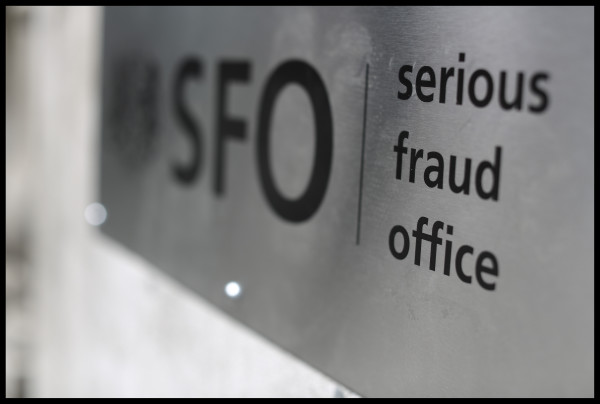When does co-operation become capitulation? Is there a danger inherent in co-operating without the guarantee of a favourable outcome?
The Serious Fraud Office has published its Corporate Co-operation Guidance, outlining the level of co-operation required if an entity hopes to avoid a criminal prosecution or to enter into a Deferred Prosecution Agreement (DPA).
This includes identifying suspected wrongdoing, self-reporting, and preserving and providing evidence. However, there is a caveat: even “full, robust co-operation” is no guarantee of a favourable resolution.
This is the first time the SFO has provided detailed written guidance on its attitude to co-operation, and it is made clear that this “means providing assistance to the SFO that goes above and beyond what the law requires”.

Co-operation – even full, robust co-operation – does not guarantee any particular outcome
Serious Fraud OfficeA significant burden is placed on corporates. However, without any guarantee of a favourable resolution is there sufficient incentive for corporates to self-report when the cost of co-operation is so high?
The investigative burden
The SFO emphasises that it will retain “full and independent control of its investigation process”, but what is clear is that the corporate will be expected to do much of the evidence-gathering, and to provide it in a format requested and ready to digest and use.
This includes providing schedules of relevant documents and a document audit trail and assisting in identifying disclosable material – that is, material which might assist an accused or undermine the prosecution case.
Prior to the Guidance, those seeking to understand the SFO’s approach to co-operation relied principally on the SFO’s and Crown Prosecution Service’s DPA Code of Practice.
This refers more generally to efforts such as supplying “sufficient information about the operation and conduct” of the corporate, and “providing a report in respect of any internal investigation including source documents”.
According to the Guidance, under the heading of preserving and providing material, “genuine co-operation” and good practice include:
- creating and maintaining a comprehensive audit trail of material, and financial records;
- preparing compilations and sorting material;
- providing material in a structured format that is “ready for ingestion” by the SFO;
- identifying third party material, and facilitating its production; and
- providing background information on the industry in question, including common practices, potential defences, and information on other actors in the market.
The SFO and the battle over privilege
The SFO has taken a tough line on claims of legal professional privilege in the course of its investigations, as demonstrated in its court battles with Eurasian Natural Resources Corporation.
The Court of Appeal found in ENRC’s favour and held that working papers and notes produced by ENRC during the course of an internal investigation were privileged.











